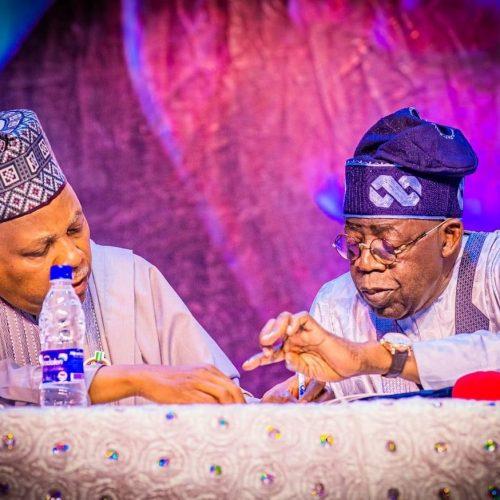A. The Story of Ifeoma and Chuka

It started like most love stories, full of promise, laughter, and hope.
Ifeoma and Chuka met during their postgraduate studies in the UK. Both ambitious, both raised in Nigeria. She studied international law while he was in engineering. They dreamed of building a beautiful life together in the UK: two degrees, one shared future.
Advertisement

To order your copy, send a WhatsApp message to +1 317 665 2180
But dreams often hit speed bumps when they collide with reality and tradition.
Ifeoma quickly found her footing, landing a lucrative job at a multinational firm. Chuka, on the other hand, struggled to secure work that matched his qualifications. In time, she became the breadwinner. Not that Chuka is doing badly but Ifeoma became a highflyer. The power dynamics shifted. The smiles faded.
Chuka, raised to believe that a man’s worth lies in his financial dominance, began to feel increasingly sidelined and undermined. Ifeoma, proud of her success but still committed to the home, grew tired of walking on eggshells.
Then came the outburst:
“You are not the man of the house, Ifeoma!”
And her weary reply:
“And I never wanted to be.”
They were no longer just a couple. They were two ideas crashing into each other: tradition and transition, culture and change.

B. The Tale of Kunle and Joke
Now, let’s bring the story closer to home with Kunle and Joke.
Kunle was a banker in Lagos. Well respected, solid income, smart dresser with the classic portrait of a responsible Nigerian man. Joke, his wife, worked in Insurance. She was intelligent, charming, and good at her job, though Kunle earned more. That meant, by unspoken tradition, he called the shots at home. Finances? Kunle. School fees? Kunle. Major decisions? Kunle again.
Still, they got along fine. They shared goals, one of which was to give their two sons a better life abroad. So, Kunle sold his house, broke his investments, and sponsored their relocation to Canada.
Then the tables turned.
Canada suited Joke like a glove. Her skills translated seamlessly, and within three years, she was thriving with good pay, professional network, and respect. Kunle, on the other hand, hit a wall. His Nigerian banking experience didn’t open doors in Canada. He had to settle for hourly jobs far beneath his qualifications.
Joke began covering about 70% of the bills. She took charge of school payments, grocery shopping, and rent negotiations. Over time, the balance of power in the home shifted, subtly at first, then sharply. She didn’t mean to “disrespect” Kunle, but her voice grew louder, her decisions firmer.
Kunle couldn’t take it.
“As an African man, I am the head of this home! You will answer to me!”
Joke shot back, tired:
“Whoever pays the piper dictates the tune.”
Now the air in their home hangs heavy with tension. Respect has become a contested word. Masculinity feels like it’s under siege. And the children? They can feel it—even if no one says a word.
These are not just two isolated stories. They are reflections of a much broader tension Nigerian couples are facing in an evolving world.
Our culture, particularly in its traditional form prizes male authority. The man leads, provides, and protects. The woman supports, submits, and nurtures. That formula worked, or at least appeared to, for generations.
But that was in the old world where women had fewer opportunities for education, fewer chances to earn, and even fewer legal protections.
Today, women are no longer passengers in the journey of life. They are driving too, and in many cases, they’re footing the bill for fuel, school fees. Feeding and rent.
The problem is, while the economic realities have changed, the cultural expectations have not shifted fast enough. This creates a gap, a painful growing rift between partners who are both trying to navigate unfamiliar terrain with outdated maps.
We need to be honest with ourselves, our parents’ generation stayed married longer, but not because all of them were married but because there are no better options and more economic empowerment. Most importantly, they stayed because of their children. They stayed in marriages because they had no choice. No money. No voice. No backup plan. Today’s women do.
So, when traditional power is challenged by new economic reality, some men feel disoriented. Their worth feels questioned. Their identity, shaken. In return, some women grow impatient. They want to be seen and treated as equals, not as “rebellious wives” but full partners. This is where the trouble lies!
And in homes where these conversations are avoided, the silence becomes louder than the conflict.
This is not a call to abandon our culture. Culture is rich. It binds us. It gives us a sense of purpose. But culture must serve the people, not the other way around.
Couples today must talk. Before marriage. During marriage. Through the tough seasons. They must decide:
Is leadership about who earns more or who listens better?
Does respect mean silence or shared decision-making?
Are we building a partnership or reenacting a power play?
Culture, like marriage, must evolve—or it will implode.
Chuka and Ifeoma are in therapy. Kunle and Joke are barely speaking. But their stories matter because they are living proof that money doesn’t just buy things, it buys power. And where power exists, so must humility, balance, and dialogue.
If you are a young Nigerian couple whether in Lagos or London, Toronto or Port Harcourt, know this:
Love alone is not enough. You must be willing to unlearn, to learn anew, and to build a culture of your own – one that reflects who you both are now, not just where you’re from. In my well over 50 years of existence, my eyes have seen things in marriages and the two stories above are real stories that I am aware of and one of them I am helping to settle and bring peace.
Let’s stop whispering about these tensions and start talking about them. Loudly. Honestly. Tenderly. Fact is, the more our young people get highly educated, choose to live abroad, we would always see this clash of culture and economic power.
Because the future of love, especially African love in a globalised world, depends on it.




















